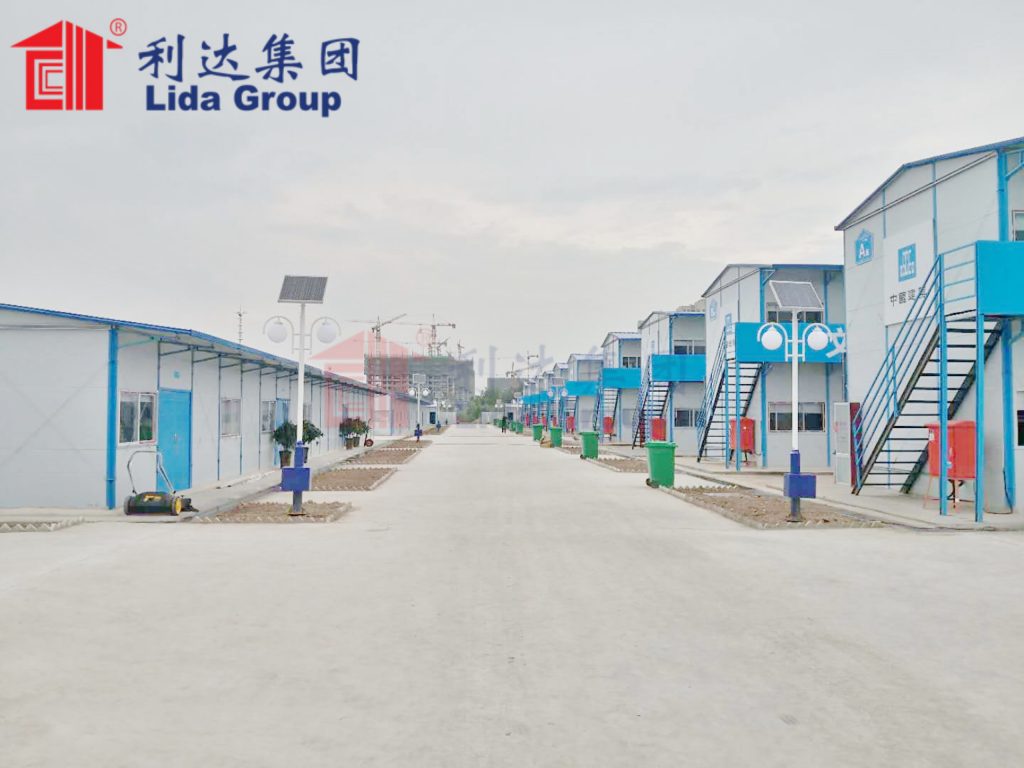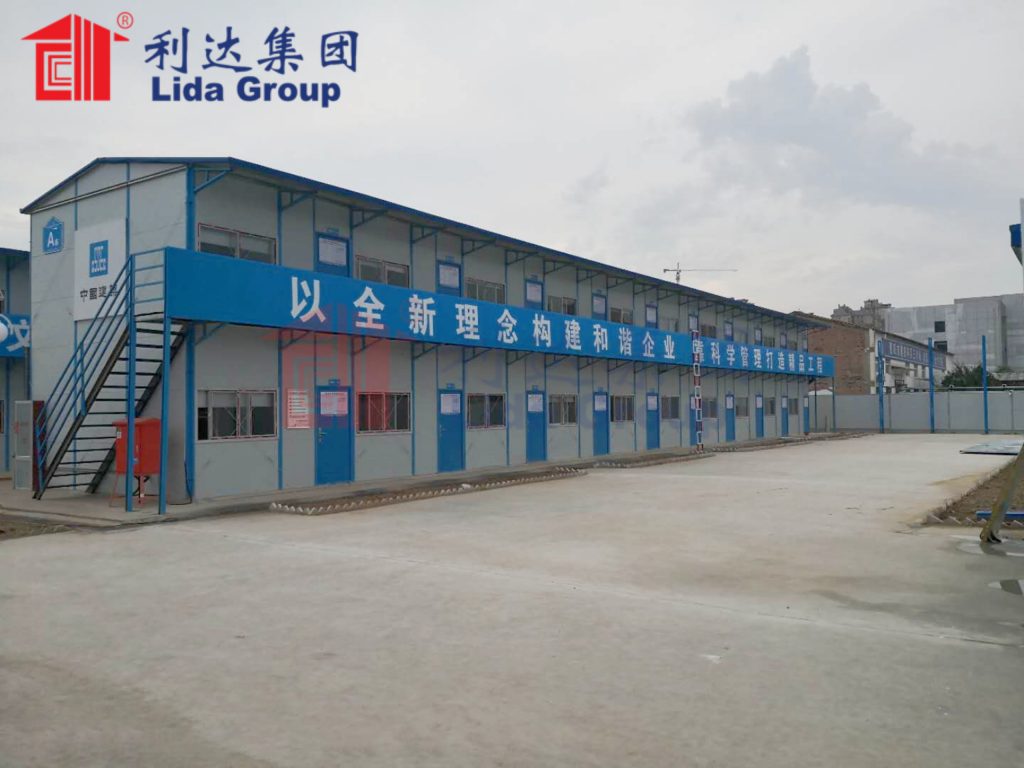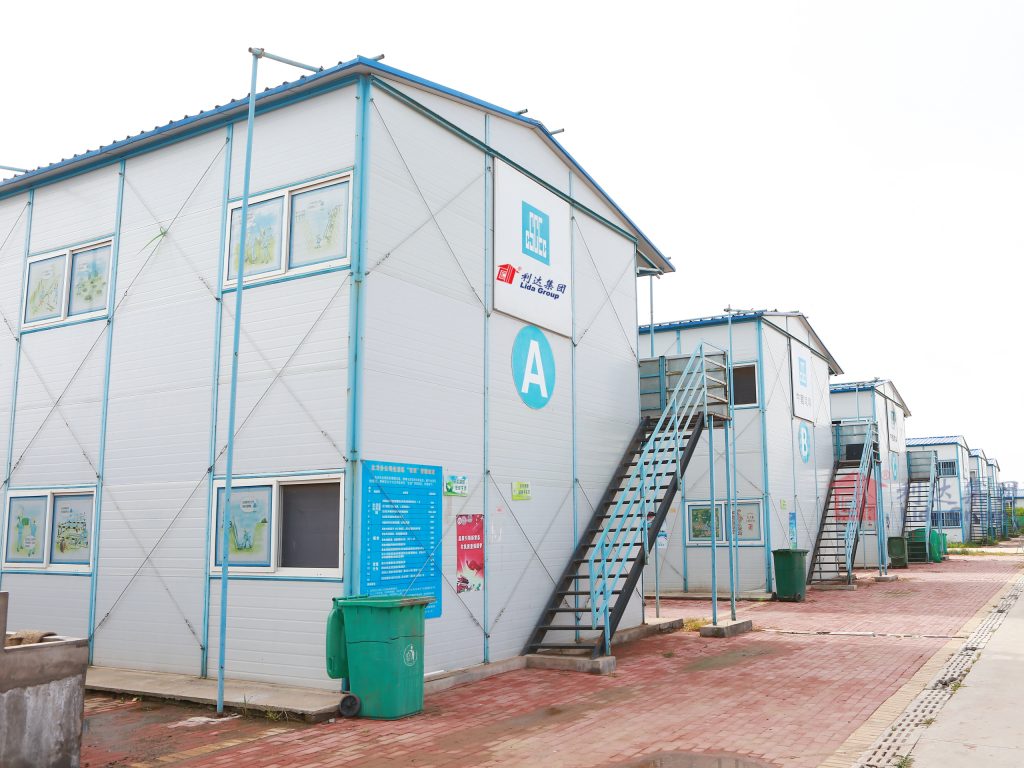Engineering experts have completed testing evaluating the strength, durability and energy efficiency of modular building panels spearheading Canadian firm Lida Group’s mass production of standardized housing for migrant worker communities. Findings offer guidance supporting wider adoption of next-generation off-site construction technologies.
Prefabricated “sandwich panel” walls composed of fiberglass-reinforced plastic skins filled with insulating foam cores represent Lida’s optimized modular building system. Panels interconnect vertically and horizontally into complete structural enclosures for multi-story buildings delivered fully outfitted to sites.
Researchers from Tsinghua University subjected full-scale panel specimens to comprehensive analytical modeling and physical simulations scrutinizing performance under typical loading scenarios like wind, seismic activity, thermal stress cycling and moisture exposure. Additional furnace experiments precisely mapped heat transfer qualities.

Results confirmed Lida’s panels exceed structural codes with strength-to-weight ratios surpassing alternatives. Their composite construction redistributes stresses without cracking to withstand extreme events while resisting mold, rot and termites compared to wood-framed walls.
Thermal modeling found R-values roughly 50% higher than standard concrete blocks commonly used in workforce housing, translating to annual energy savings exceeding 15%. Panels’ airtightness further reduces infiltration. Furnace tests verified heat loss coefficients meeting Passive House standards for ultra-low energy building envelopes.
Research leader Professor Qiang Yang hailed the findings: “Modular construction applies progressive materials science supporting sustainable housing goals through optimized prefabrication. Lida’s panels demonstrate residential and construction applications can advance in tandem towards lower carbon futures.”

The project aimed informing provincial planners of sandwich panel system’s viability for vast new dormitory developments accommodating expanding migratory workforces critical to China’s growing economy. Researchers toured Lida’s Weifang factory witnessing closed-loop, industrial-scale panel production under strict quality control.
Standardized 5.4 by 12 meter wall, floor and roof cassettes mass-click together on-foundations within weeks using mobile cranes. Outfitted electrical, plumbing and HVAC systems integrate heating via roof-mounted solar and geothermal arrays energizing net-positive buildings. Analyses showed energy self-sufficiency reduces long-term occupancy costs.
Researchers encouraged scaling viable modular housing to revitalize China’s extensive aging migrant accommodation stock estimated hundreds of millions dependent on basic facilities. Strategically investing in dignified living standards through innovations unlock multiplying socioeconomic benefits according commissions.

Expanded partnerships form researching building-integrated photovoltaics, battery storage, distributed renewable microgrids and smart building automation optimized for modular construction. Emerging technologies may accelerate sustainability while strengthening national energy security, public health and social cohesion as more participate in shared prosperity.
By rigorously validating pioneering off-site building systems, research validates pathbreaking models attracting strategic investment and policy support elevating global shelter standards for humanity through Industrialized Construction 2.0.

Related news
-
Report highlights how Lida Group's flat-packed modular container housing may transform labor force accommodation sector to recruit and retain transient laborers essential to domestic construction boom.
2024-05-14 10:56:24
-
Researchers analyze the fire safety, recyclability and lifespan of Lida Group's innovative metal housing design for tall steel structured buildings.
2024-05-10 11:56:50
-
NGO works with Lida Group to deploy temporary self-contained prefab container apartments fitted with livelihood amenities to remote regions lacking accommodation for seasonal agricultural workers.
2024-05-14 10:17:00
contact us
- Tel: +86-532-88966982
- Whatsapp: +86-13793209022
- E-mail: sales@lidajituan.com


